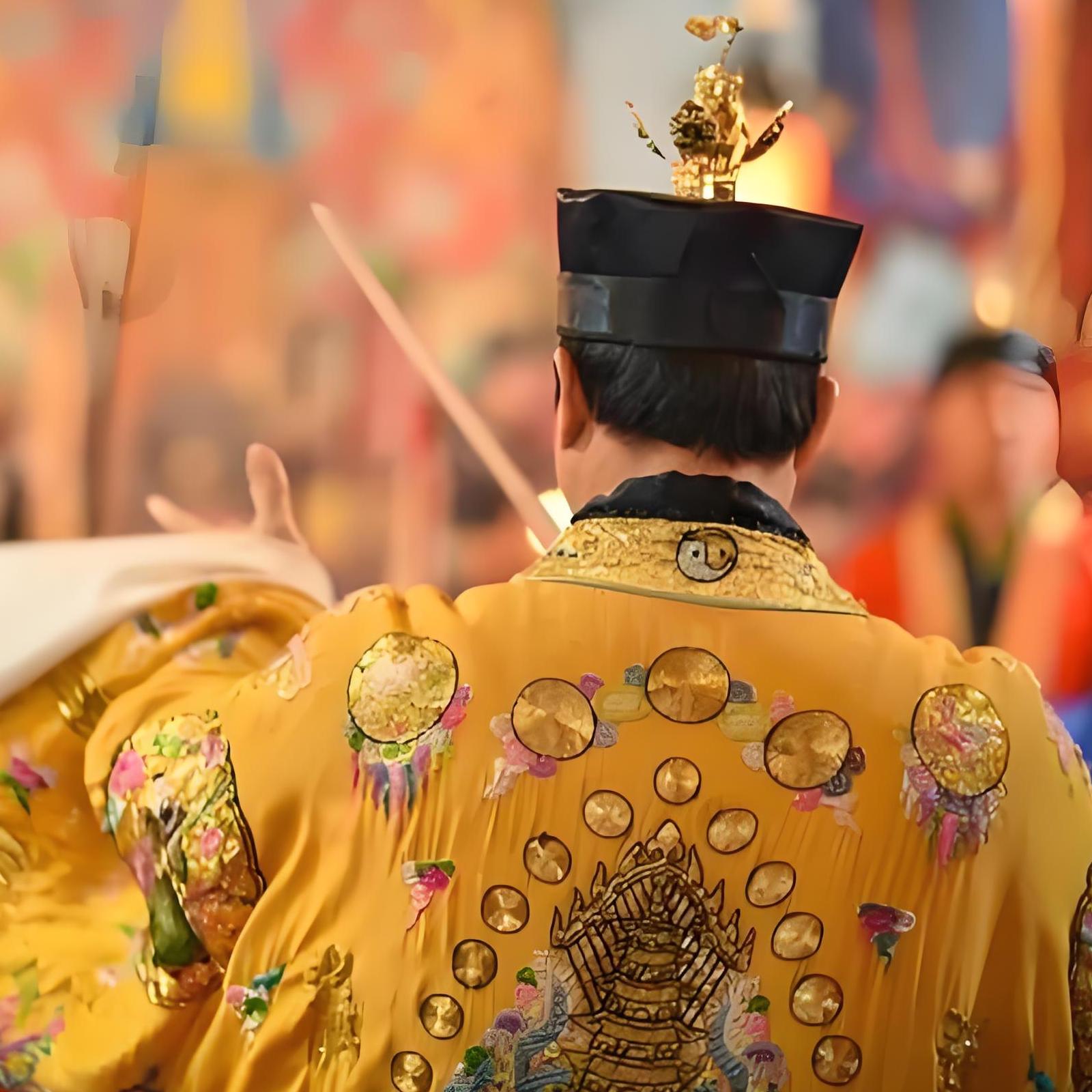**The Story of Fang Xiaoru and the Feng Shui Prophecy**
Fang Xiaoru (1357-1402) was a prominent minister, scholar, writer, and essayist of the Ming Dynasty, hailing from Xishangfang Village in Ninghai County, Zhejiang Province. Known by his courtesy name Xizhi and also by Xigu, he adopted the literary name Xunzhi for his study. Due to his ancestral home in Gou City, he was also referred to as the Grand Master of Gou City and posthumously honored as Wenzheng. As a child, Fang Xiaoru was exceptionally bright and quick-witted, with sharp, piercing eyes, and he would read over an inch-thick stack of books daily. His fellow villagers called him "Little Han Yu" after the famous Tang dynasty writer. As an adult, he studied under Song Lian, becoming more renowned than Song Lian's other distinguished disciples. Later, he was implicated in drafting the ascension edict for the Yongle Emperor Zhu Di, who initiated the Jingnan Campaign, resulting in the execution of over 870 of Fang’s relatives and associates.
Following the death of the Hongwu Emperor, the crown prince Zhu Biao died young, leading to the ascension of Zhu Biao's second son, Zhu Yunwen, as the Jianwen Emperor. The Jianwen Emperor’s attempts to reduce the power of his uncles sparked a rebellion by his uncle Zhu Di, the Prince of Yan. Zhu Di seized the throne, becoming the Yongle Emperor, in what was known as the Jingnan Rebellion. When Zhu Di ordered Fang Xiaoru, a scholar-official who had served both the Hongwu and Jianwen Emperors, to draft the proclamation of his ascension, Fang refused, defiantly writing "The Traitor Zhu Di Usurps the Throne." Infuriated, Zhu Di threatened to execute Fang’s entire family. Fang retorted, "Why not add a tenth clan?" Consequently, Fang was executed by dismemberment, and ten clans related to him (including his disciples) were eradicated, totaling 873 people.
Fang Xiaoru’s integrity and unwavering loyalty were legendary, and his death marked one of the only instances in history where the punishment of extermination extended to ten clans, a rarity shared only with another loyalist, Jing Qing.
Before Fang Xiaoru was born, his father, Fang Kexin, discovered a piece of land believed to be a feng shui treasure. Planning to bury his ancestors there, he had an unusual dream that night. An elderly man in a red robe appeared, bowing respectfully and pleading for a three-day postponement so that he and his descendants could move. The old man promised great rewards for this favor.
Fang Kexin, skeptical and pragmatic, dismissed the dream. The chosen day was deemed auspicious by the feng shui master, and he saw no reason to delay. However, upon digging, the workers discovered a cave filled with hundreds of red snakes. Furious, Fang Kexin ordered them burned.
That night, the red-robed elder appeared again in Fang Kexin’s dream, weeping bitterly. He lamented that his plea had been ignored and his descendants massacred. In retaliation, he vowed to annihilate Fang’s lineage as retribution for the snake massacre.
Soon after, Fang Xiaoru was born (with a tongue said to be pointed like a snake’s and blood-red in color). Thanks to the favorable feng shui of their ancestral tomb, Fang Xiaoru rose to high office, becoming a revered scholar and the Grand Academician. His life, however, came to a tragic end when he resisted Zhu Di's usurpation and faced execution.
When Zhu Di took Nanjing and overthrew the Jianwen Emperor, Fang Xiaoru alone among the officials refused to submit. Zhu Di tried to coerce him into writing a proclamation justifying the rebellion. Instead, Fang boldly penned "The Traitor Zhu Di Usurps the Throne," enraging Zhu Di, who threatened to exterminate Fang’s entire clan. Fang replied, "Even if you destroy ten clans, so be it." Zhu Di, angered, included Fang’s teachers and disciples as the tenth clan, resulting in the massacre of 873 people—the same number as the red snakes.
It is believed Fang Xiaoru was the reincarnation of the snake king, seeking vengeance for his clan's annihilation.
Buddhists believe that relationships between people arise from four types of karmic bonds: gratitude, resentment, debt, and repayment. Close bonds result in family; less significant ones in relatives or friends; and absence of bonds leaves people as strangers.
Children and parents share profound karmic connections. Those here to repay kindness are dutiful and virtuous, while those with past grievances cause trouble.
Fang Xiaoru, respected in history as a great Confucian scholar, was unknowingly a reincarnated snake king avenging his kin.
Ancient wisdom advises against senseless killing of creatures, as it invites retribution that can extend to descendants. Whether from the perspective of protecting animals or promoting kindness, we should avoid taking lives. Both humans and animals reincarnate, and we should consider the consequences of our actions.




